You have recently been referred to receive Cognitive Behavioral Therapy (CBT) for your substance use. You don’t know where to start. You have heard the term before, but you have no clue what it means or where to go.
What is Cognitive Behavioral Therapy? How does CBT work? What are the benefits of CBT?
And where is the best place to find CBT in Orange County, CA?
Cognitive Behavioral Therapy (CBT) is an evidence-based form of psychological treatment. Mental professionals widely regard CBT to be one of the most effective forms of therapy. A great place to start is Lift Off Recovery, a treatment center specializing in recovering from substance use.
Continue reading to learn more.
What is Cognitive Behavioral Therapy? (CBT)
Cognitive Behavioral Therapy (CBT) is kind of like how it sounds.
“Cognitive” refers to the part of therapy that focuses on cognition, more commonly known as thoughts. The theory of CBT is that distorted thoughts, beliefs, and perceptions are the root cause of undesirable emotions and behaviors. CBT helps patients recognize these distorted thoughts and reframe the negative thoughts for better outcomes.
“Behavioral” refers to the maladaptive behavior that has evolved from distorted thinking. After working with patients with identifying and adjusting their negative thought patterns, CBT therapists help patients discover new, healthy behaviors for coping with stressful circumstances.
CBT Techniques
Cognitive Behavioral Therapy (CBT) is an overarching term for several different treatment methods for addressing psychological symptoms. The first two types of approaches may be obvious.
1. Cognitive Therapy
2. Behavioral Therapy
Cognitive therapy focuses on maladaptive cognitions, while behavioral therapy focuses on maladaptive behavior in response to stressors.
Other approaches of CBT include:
3. Dialectical Behavioral Therapy (DBT), a form of CBT that is often recommended for patients with borderline personality disorder, applies both the cognitive and behavioral techniques but also adds mindfulness and emotional regulation techniques into the mix
4. Rational Emotive Behavior Therapy (REBT) focuses on helping patients recognize the irrational thoughts that spark unhealthy emotional responses. The patient will learn not only to identify these irrational thoughts but also to deconstruct and reconstruct irrational thoughts into rational thoughts.
5. Multimodal therapy examines 7 different dimensions or modalities
- biological
- interpersonal
- behavioral
- emotional
- feelings
- cognition
- imagination
How Does CBT Work?
Something that sets Cognitive Behavioral Therapy (CBT) apart from other forms of therapy is that CBT focuses on the here-and-now. Other forms of therapy can help you process past issues to progress, but CBT aims to discover and correct the negative thoughts and behaviors that are not serving you now.
During your sessions, you and your therapist will work as a team to learn the negative thoughts triggering negative thoughts and behaviors. You are basically being trained to be your own therapist.
You will be doing a lot of what is known as “cognitive restructuring.” You will be doing exercises to recognize irrational thoughts and then replacing them with rational thoughts.
An Example
One common cognitive distortion is “overgeneralization,” which typically features words such as “always,” “never,” “nothing,” or “everything.”
Let’s say you are arguing with your significant other. You feel angry because your significant other NEVER take out the trash.
Never is an absolute term.
If you look closely at the word “never,” while it might feel like your significant other never takes out the trash, they have probably done it on occasion, if not a couple of times in the course of their life. Maybe they have not done it since last Tuesday. Maybe, they have not done it since last Christmas.
But the point is, your significant other has taken the trash out at one point in their lifetime. Maybe they’re busy. Maybe they’re tired.
Maybe, you are more on the ball with taking out the trash. Looking at the thought causing you to feel irate may help you look at the situation with a realistic lens.
What to Expect
The average number of sessions you will be expected to attend will be 16 weeks, give or take. The sessions typically last anywhere from 30 to 60 minutes each.
You can expect that your therapist will assign you homework outside of therapy sessions.
You may be thinking, “Homework? Why homework? I am too old for homework!”
While CBT is working on the here-and-now, odds are, you did not develop distorted thinking patterns overnight. Learning to examine your thoughts and reframing the negative thoughts into positive ones will take time and practice.
What Are the Benefits of CBT?
Even though CBT involves a short treatment plan, the results are long-term. Granted, applying CBT to your life will take effort, but it becomes easier with time. What you learn in CBT is invaluable.
CBT can be a wonderful alternative to medication for people who have found medication ineffective or reluctant to start medication. Some clinical studies have suggested that CBT is more effective than pharmaceutical therapy. Simultaneously, some individuals might still need medication in conjunction with CBT treatment.
Who Benefits From CBT Treatment?
The beauty of CBT is it can treat many different individuals with many different psychological symptoms across many different kinds of mental disorders.
Some examples of mental disorders that could benefit from CBT include:
- substance use disorder
- bipolar disorder
- major depressive disorder
- generalized anxiety disorder
- phobias
- post-traumatic stress disorder
- eating disorders
- schizophrenia
Not only does CBT address mental disorders, but CBT can also help people who experience emotional distress as a result of a physical condition.
Some physical conditions that have benefited from CBT include:
- irritable bowel syndrome (IBS)
- fibromyalgia
- chronic fatigue syndrome
- chronic pain
The most important thing to note, though, is that there must be a want and willingness to change. It would be best if you wanted to change. You must be willing to put in the effort to make the necessary changes to see results.
CBT at Lift Off Recovery
Now you know about Cognitive Behavioral Therapy. Now you know what it means and how it can help. Now you know what you need to make CBT work for you to make the most of the tools that CBT offers.
Contact Lift Off Recovery today to get started with your treatment! We provide the best CBT in Orange County.
Together, we can understand the thoughts, feelings, and actions that feed your addiction. We can work together to identify how your destructive thoughts are leading you down a destructive path.
We will work together in replacing those distorted thoughts with positive, constructive thoughts that will reap positive attitudes and behaviors.
You are not alone in your recovery from addiction.










